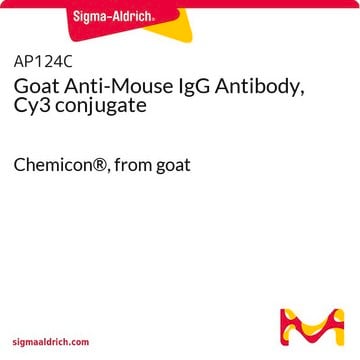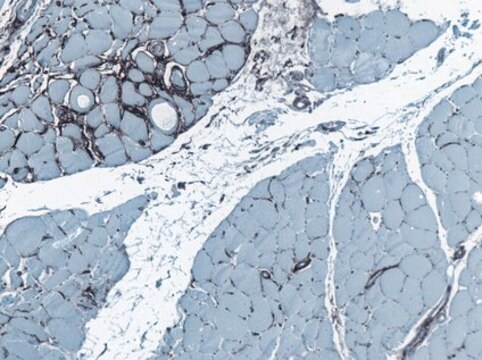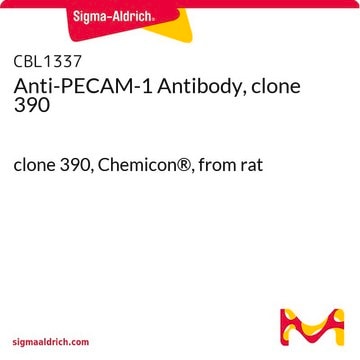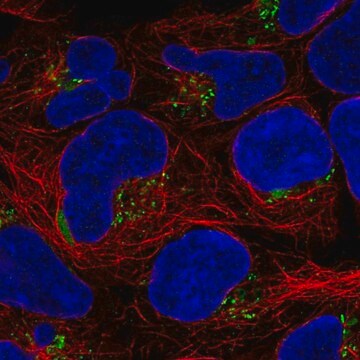AP202
Goat Anti-Rat light chain Antibody
Chemicon®, from goat
About This Item
Productos recomendados
origen biológico
goat
conjugado
unconjugated
forma del anticuerpo
affinity purified immunoglobulin
tipo de anticuerpo
secondary antibodies
clon
polyclonal
reactividad de especies
rat
fabricante / nombre comercial
Chemicon®
técnicas
ELISA: suitable
western blot: suitable
isotipo
IgG
Condiciones de envío
wet ice
modificación del objetivo postraduccional
unmodified
Descripción general
Especificidad
Inmunógeno
Aplicación
Secondary & Control Antibodies
Fragment Specific Secondary Antibodies
ELISA
Optimal working dilutions must be determined by the end user.
Descripción de destino
Forma física
Almacenamiento y estabilidad
Información legal
Cláusula de descargo de responsabilidad
¿No encuentra el producto adecuado?
Pruebe nuestro Herramienta de selección de productos.
Código de clase de almacenamiento
12 - Non Combustible Liquids
Clase de riesgo para el agua (WGK)
WGK 2
Punto de inflamabilidad (°F)
Not applicable
Punto de inflamabilidad (°C)
Not applicable
Certificados de análisis (COA)
Busque Certificados de análisis (COA) introduciendo el número de lote del producto. Los números de lote se encuentran en la etiqueta del producto después de las palabras «Lot» o «Batch»
¿Ya tiene este producto?
Encuentre la documentación para los productos que ha comprado recientemente en la Biblioteca de documentos.
Nuestro equipo de científicos tiene experiencia en todas las áreas de investigación: Ciencias de la vida, Ciencia de los materiales, Síntesis química, Cromatografía, Analítica y muchas otras.
Póngase en contacto con el Servicio técnico








